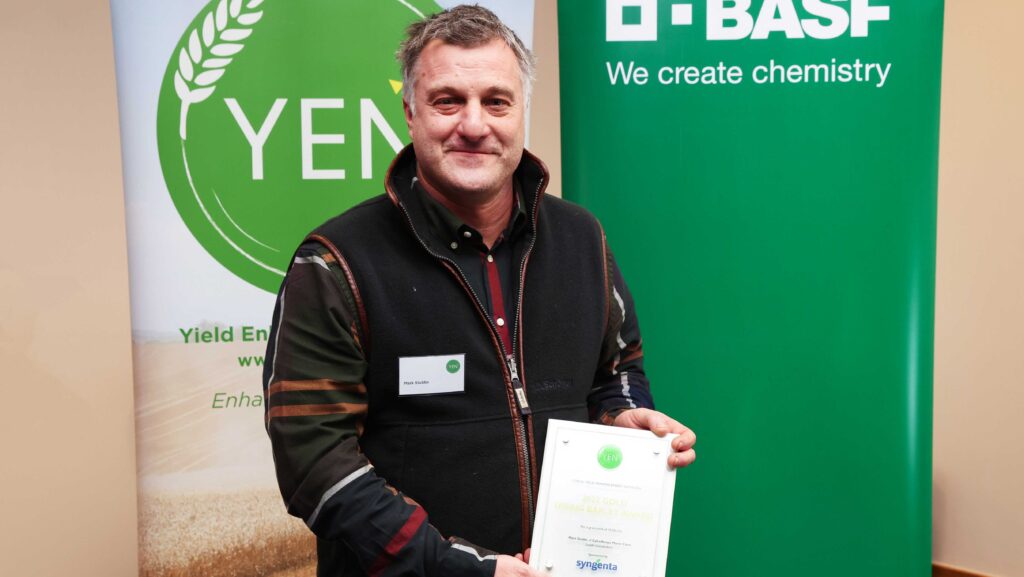Farmer Focus: I propose an SFI option to dredge ditches
 Mark Stubbs © YEN
Mark Stubbs © YEN On 20 October 2023, we had just finished drilling winter wheat on the 25ha of land at Stainfield that I contract farm, in perfect dusty conditions.
Little was I to know what events were about to unfold.
As we all know Storm Babet wreaked havoc that weekend, causing our once dusty fields to become lakes, as the Barlings Eau River burst its banks.
See also: Defra removes 150m limit from flood recovery fund
Of the 25ha drilled, 20ha were lost due to the intense rainfall and widespread flooding, but this was nothing compared to my neighbour, Henry Ward, who catastrophically lost more than 400ha of freshly drilled land.
All of his land remained submerged under water for a further six months, with no help forthcoming.
We thought we saw a light at the end of the tunnel, when the Farming Recovery Fund was launched.
This offered grants of £500-£25,000 to restore land to its pre-flood condition, only to find that you had to be located within 150m of a “main” river.
There was an offer of £130/ha compensation from Defra which does not come close to the money which farmers have lost due to flooding.
Barlings Eau was not on this list, plus my neighbour had land more than a mile away from this river.
Defra rightfully scrapped the 150m requirement for flood funding, after facing criticism from the farming industry.
But my question to Defra remains: What is your response to helping “Britain’s most flooded farmer” and other farmers in very similar situations?
Secondly, what precautions are the Environment Agency proposing to prevent incidents of this nature reccurring year on year?
I would like to propose to Defra a Sustainable Farming Incentive scheme option which pays farmers to clean out our own ditches annually.
This would need to be on a payment scale where the farmer at the mouth of the river is paid more than the farmer at the source to provide a financial incentive for this work to be undertaken.


